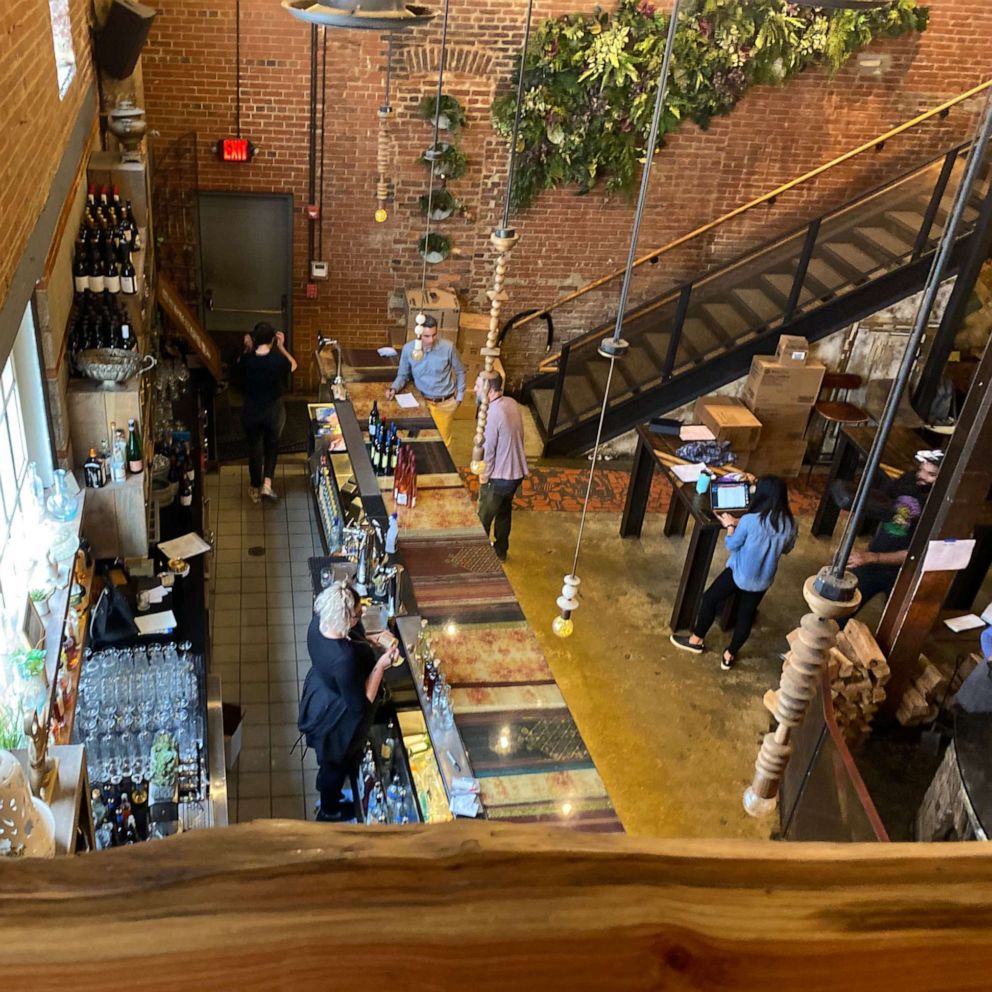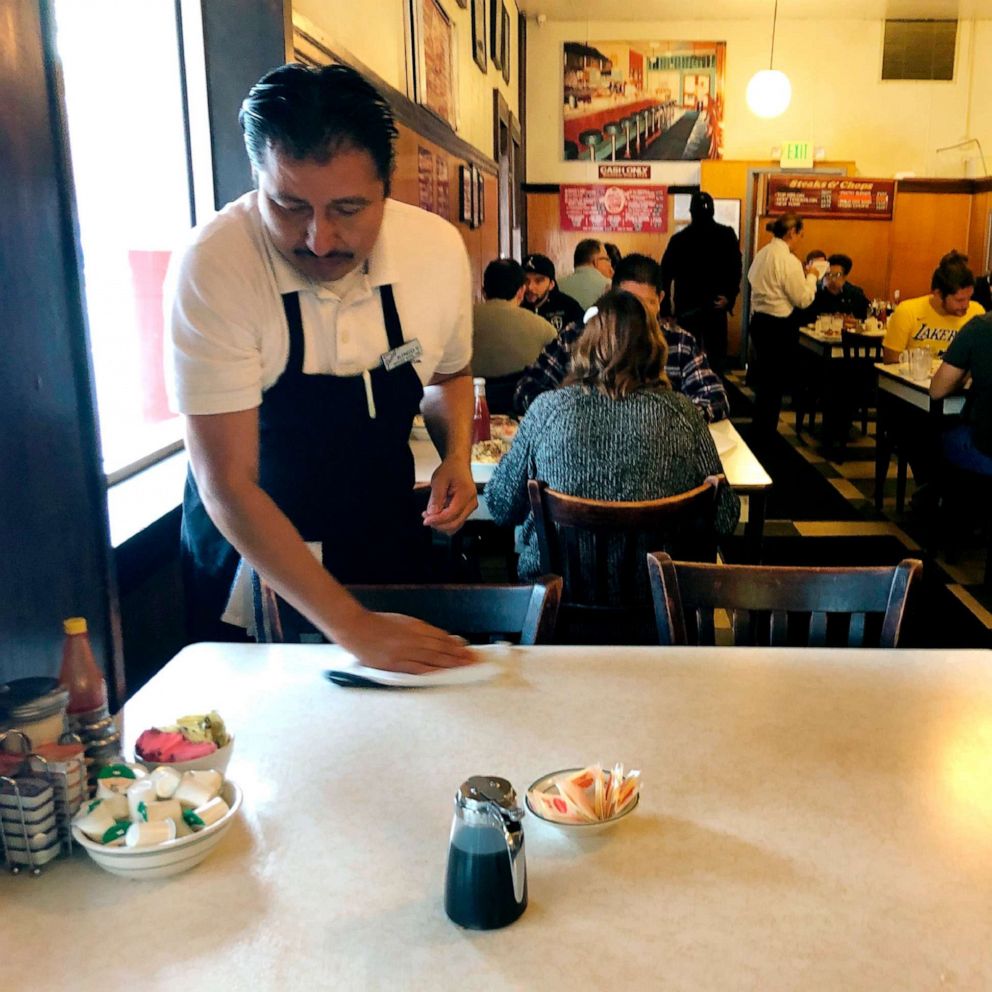Chef Tom Colicchio says coronavirus government relief package 'doesn't really work' for restaurants
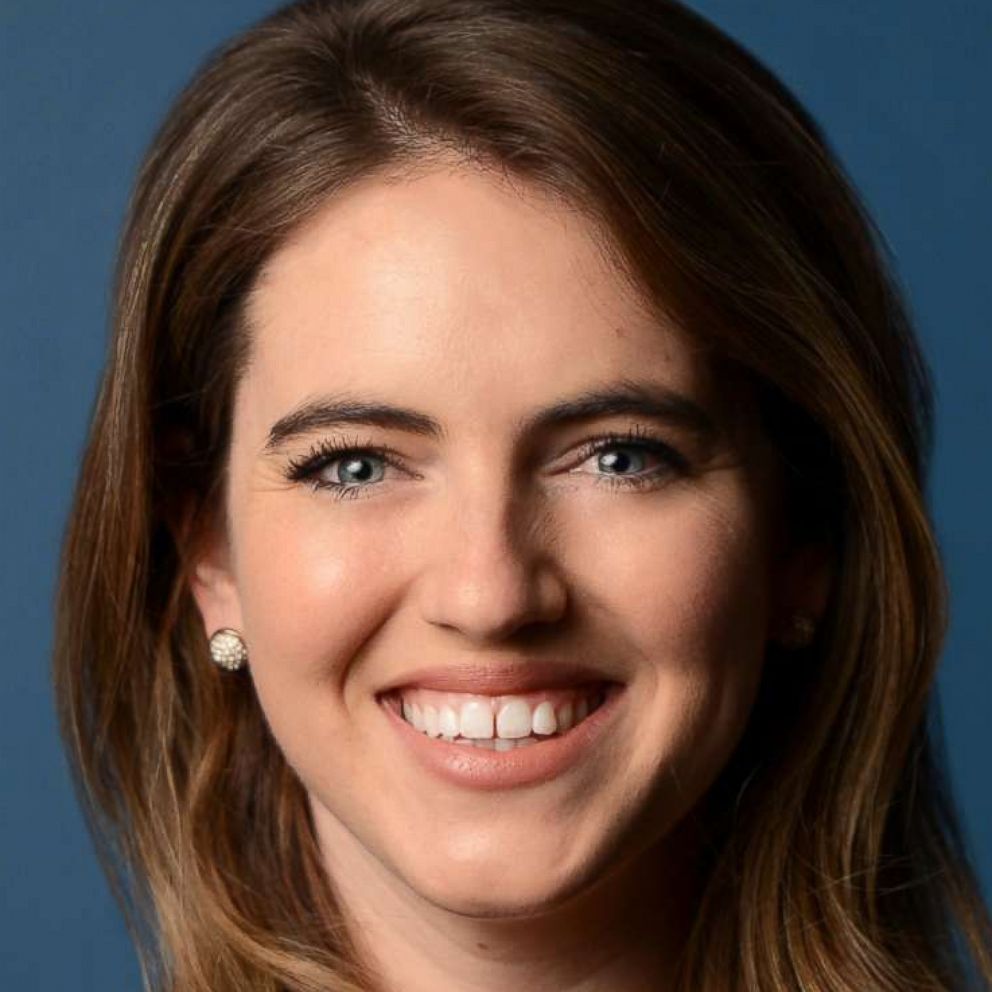
Restaurants have been among those hardest hit by the coronavirus pandemic. At a time when the future of the foodservice industry feels uncertain, one chef has called for the government to "listen to the people on the front lines of feeding people."
Celebrity chef and food advocate Tom Colicchio, owner of the restaurant and hospitality group Crafted Hospitality, was one of many New York City restaurateurs who made the difficult decision to close his kitchens and lay off over 400 of employees due to the novel coronavirus, COVID-19.
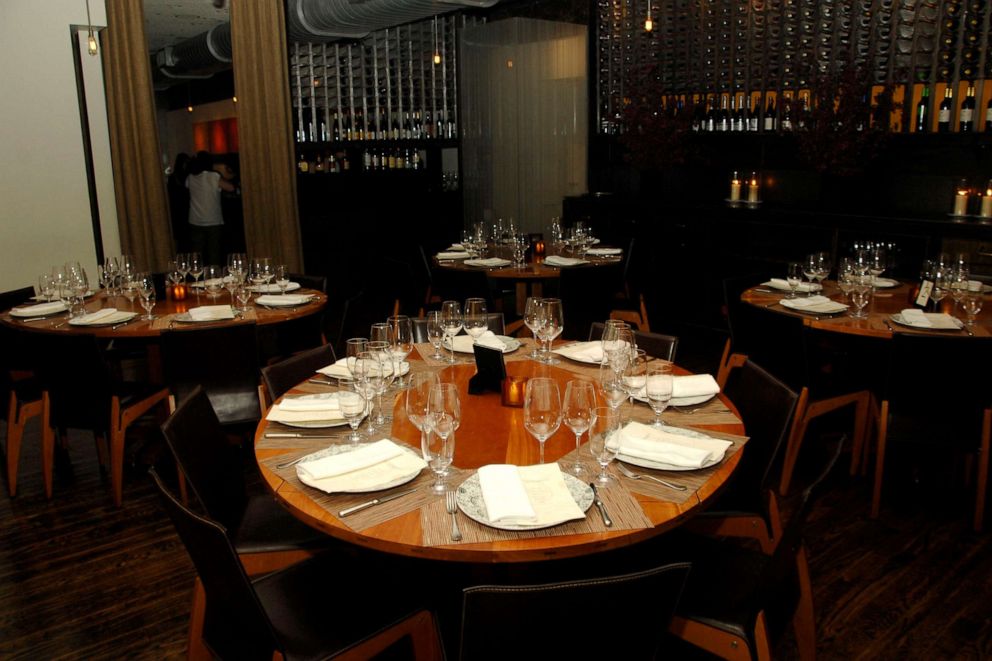
Now, he's helping to lead the charge to provide desperately needed aid through the Independent Restaurant Coalition to food service workers, small business owners and their communities.
"We started it about three or four weeks ago when we realized the enormity of the problem that we were facing and we knew there was a stimulus package that was going to help small businesses," Colicchio said on ABC News' "Pandemic: What You Need to Know."
"We found groups in Chicago that was working on the same issue. We found groups throughout the South and we put all these coalitions together and very quickly we hired a lobbying team, a [communications] team, and we are having direct conversations with members of Congress to let them know the issues that we have in the restaurant industry," Colicchio said. "And also -- to let [Congress] know that the -- CARES Act -- doesn't really work for the restaurant industry right now."
He said he's also trying to get the message to Congress that the Coronavirus Aid, Relief, and Economic Security Act (CARES) Act "doesn't really work for the restaurant industry right now."
The CARES Act provides the single largest economic relief package in U.S. history, and will include direct payments for qualifying individuals as well as loans and loan forgiveness for small businesses.
Even with the government's initial steps toward relief, Colicchio explained that "this is going to be tough" for the hospitality industry, which lost hundreds of thousands of jobs, according to the U.S. Department of Labor.
"This is not going to be easy. I still suspect that at least 50% of the restaurants will not get open. Then the problem with that is you're going to have a lot of vacancies on ground floor spaces," he said. "Restaurants have become such a part of our culture, even the small local restaurants that we have, and if they're not there when we come out of this, where are we going to go to celebrate and blow off steam. Where are we going to go together with each other? I'm really, really concerned."
Colicchio said he's been asked repeatedly when he's going to open his restaurants again. He said this isn't the right question to be asking.
"I think the question is when does the public feel confident and feel secure enough to start gathering again with groups of people? It doesn't really matter when we can open up," he said. "A lot of restaurants are trying to fill a gap by doing takeout or delivery and that's really not moving the needle."
Tune into ABC at 1 p.m. ET and ABC News Live at 4 p.m. ET every weekday for special coverage of the novel coronavirus with the full ABC News team, including the latest news, context and analysis.
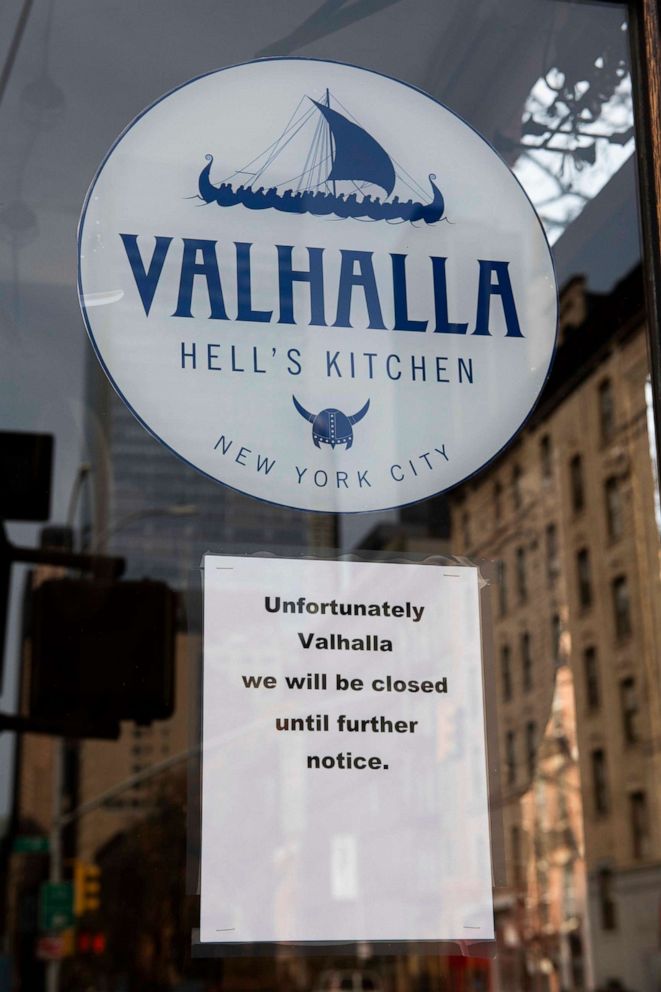
Colicchio, who is a councilmember for the non-profit food rescue organization City Harvest, said there are ways to deliver food to communities in need if "restaurants have the proper funding through the government."
He spoke of New York Sen. Nydia Velazquez's proposed Community Meals Fund bill, which would grant nonprofits $500,000 to partner with small and mid-sized restaurants to prepare and distribute food to vulnerable communities.
"There's a role that we can all play and it's just getting a lot of cooperation and we need smart government right now," he said. "They should listen to small business owners. They should listen to the people on the front lines of feeding people and people who are taking care of people, because they're the ones who know how to get this done."

